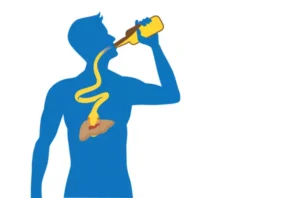
Today, kudzu grows in other parts of the world as well, including in the southern United States. Role of Funding Source Funding for this study was provided by NIAAA grant R01-AA10536 to Dr. Lukas and NCCAM grant P01-AT to Dr. Lee. The NIAAA and NCCAM had no further role in the study design; in the collection, analysis and interpretation of data; in the writing of the report; or in the decision to submit the paper for publication. The information we provide while responding to comments is not intended to provide and does not constitute medical, legal, or other professional advice.

A new treatment for psoriasis
6-Gingerol as the major bioactive constituent of ginger could efficiently scavenge various free radicals [77]. The antioxidant compounds of ginger may modulate the oxidative stress induced by alcohol. SOD, ascorbic acid, and GSH levels were decreased, and GST activity was increased in alcohol treated rats. However, after treatment with the extract of ginger, these parameters came to normal [78]. This study provides additional evidence https://ecosoberhouse.com/ that an extract of the kudzu root significantly reduces alcohol consumption by human participants and confirms that this botanical medication may be a safe and effective adjunct pharmacotherapy for treating alcohol use disorders. The sample size was relatively small; however, a repeated measures, crossover design was used with participants as their own control receiving multiple pretreatments, each with placebo and alcohol challenges.

Should I check my cholesterol levels at home?
- Daidzin is known to be a selective inhibitor of aldehyde dehydrogenase, the major enzyme responsible for the breakdown of acetaldehyde which is the primary metabolite of alcohol oxidation.
- It is quite likely that the desire to use alcohol in an outpatient setting cannot be captured with a single question; we also observed an absence of an effect on desire for alcohol in our previous study (Lukas et al., 2005).
- If I had been committed to using it to wean off of alcohol and then quit, it might have been a very valuable part of my recovery.
- In a clinical population study, kudzu treatment resulted in significant reduction in alcohol intake in a naturalistic setting.
- Role of Funding Source Funding for this study was provided by NIAAA grant R01-AA10536 to Dr. Lukas and NCCAM grant P01-AT to Dr. Lee.
- A prior study of kudzu to treat alcohol use in an outpatient setting reported that kudzu had no effect on maintaining sobriety or altering alcohol craving (Shebek and Rindone, 2000).
One study in mice found that kudzu vine extract was highly beneficial in treating alcohol-induced liver damage by scavenging harmful free radicals and boosting the natural antioxidant system (6). It’s important to note that these studies used kudzu extract, which may have contained other parts of the kudzu plant besides the root. Thus, scientists need to do more research in this area on the effects of kudzu root specifically. For over 2,000 years, people have used kudzu root in traditional Chinese medicine for purposes like treating fevers, diarrhea, and even diabetes and heart disease (1). The ability of puerarin and related isoflavones to facilitate alcohol’s entry into the brain has not been systematically studied. For this mechanism to be plausible, the more rapid penetration of alcohol into the brain would have to trigger a satiety mechanism rather quickly such that the desire for the next drink is delayed—thus interrupting a binge episode.
Health Benefits of Kudzu—Including Whether It Can Really Help Treat a Hangover

Participants were instructed to always keep the beer glass on the table except when taking a sip. The scale was connected to a computer in an adjacent room that ran a customized program that sampled the scale at 5 Hz and detected any weight changes that exceeded 1 gm. Additional details and photos of the device can be found in Lukas et al. (2005). To preserve the double-blind, kudzu and placebo capsules were repacked into #00 opaque capsules (Apothecary Products, Minneapolis, MN).

Acute alcohol administration resulted in expected, dose-related alterations in subjective, psychomotor, cognitive, and physiological effects. These effects typically were greater after the higher dose, and the time course follows the known effects of alcohol (Brasser et al., 2004; Holdstock et al., 2000). Subjective measures of alcohol intoxication were greatest at 30 minutes and returned to or were close to predrinking levels by the end of the assessment period (3 hours). Psychomotor (stance stability/body sway) and cognitive function were most affected at 60 minutes, and they too returned to or were close to baseline by 3 hours. Heart rate and skin temperature effects were collected only for the first 10 minutes after drinking because that was the only period during which the participants were sitting calmly and not required to perform any tasks (and thus offered artifact-free data).
1. Pueraria Lobata
- Furthermore, it’s likely that the suggested doses for kudzu root will vary depending on the manufacturer and the type of supplement you may be considering.
- Following the first set of challenge sessions, there was a 1 month ‘washout’ period during which no medication was taken.
- Pharmacotherapies to curb excessive drinking are important for treating alcohol use disorders.
Morning and evening sets of capsules also contained a 25 mg tablet of riboflavin (vitamin B2) and the afternoon sets contained an additional placebo capsule, in addition to the two kudzu extract capsules, in order to maintain a uniform number (3) of capsules. Capsule sets were individually packaged in small envelopes and marked on the outside with date and time of day to be consumed. Medication adherence was measured using ultraviolet (UV) light to detect riboflavin in centrifuged urine samples (Del Boca et al., 1996) that were collected twice a week.

In addition to kudzu extract, what are some other natural remedies to assist in overcoming alcohol dependency?
People have used it for many years in traditional Chinese medicine, and it resembles other root tubers, like yams. In its raw form, kudzu root resembles other root herbs to curb alcohol cravings tubers, such as potatoes or yams. The room contained a small sink with an under-the-counter refrigerator where the beverages (beer, juice, and water) were kept.
Is Alcoholism A Mental Illness? What Is The Best Treatment For Alcoholism?
- The most important purpose of treating alcohol use disorder is centered on reducing alcohol withdrawal syndrome and improving alcohol drinking behaviors.
- Kudzu treatment resulted in significant reduction in the number of beers consumed, an increase in the number of sips and the time to consume each beer and a decrease in the volume of each sip.
- The beneficial effects of puerarin on alcohol intake in alcohol-preferring rats reported in the literature also suggest the potential utility of puerarin as an anti-craving agent (Overstreet et al. 2003; Rezvani et al. 2003).
Animal tests verified that the CO2 extract with 24.33% hyperforin and a very low content of hypericin inhibited alcohol intake more potently than the alcoholic extract containing 0.3% hypericin and 3.8% hyperforin. Neurochemical mechanisms are responsible for the reduction of alcohol intake and the antidepressant-like effect of HPE [105]. Hypericum perforatum markedly reduced alcohol intake in msP rats, and its effect was behaviorally selective. In other studies, the GABAA receptor antagonist bicuculline and the GABAB receptor antagonists CGP did not modify the effect of CO2 extract of hypericum. These results indicated that the inhibitory effects of HPE on alcohol intake are not mediated by GABA agonist actions [106,107].
Estrogenic activity
- Persons of Asian descent were excluded because of their known increased flushing reaction to alcohol.
- The relatively few clinical studies carried out in humans have yielded mixed results.
- Any product carrying a THR mark can be relied upon to contain the amounts of herb/active ingredient as stated on the bottle.
- Dihydromyricetin (DHM), a flavonoid separated from Hovenia dulcis, was identified to interact with γ-aminobutyric acid receptors and block alcohol intoxication and withdrawal signs in rats such as tolerance, increased anxiety, and seizure susceptibility.
